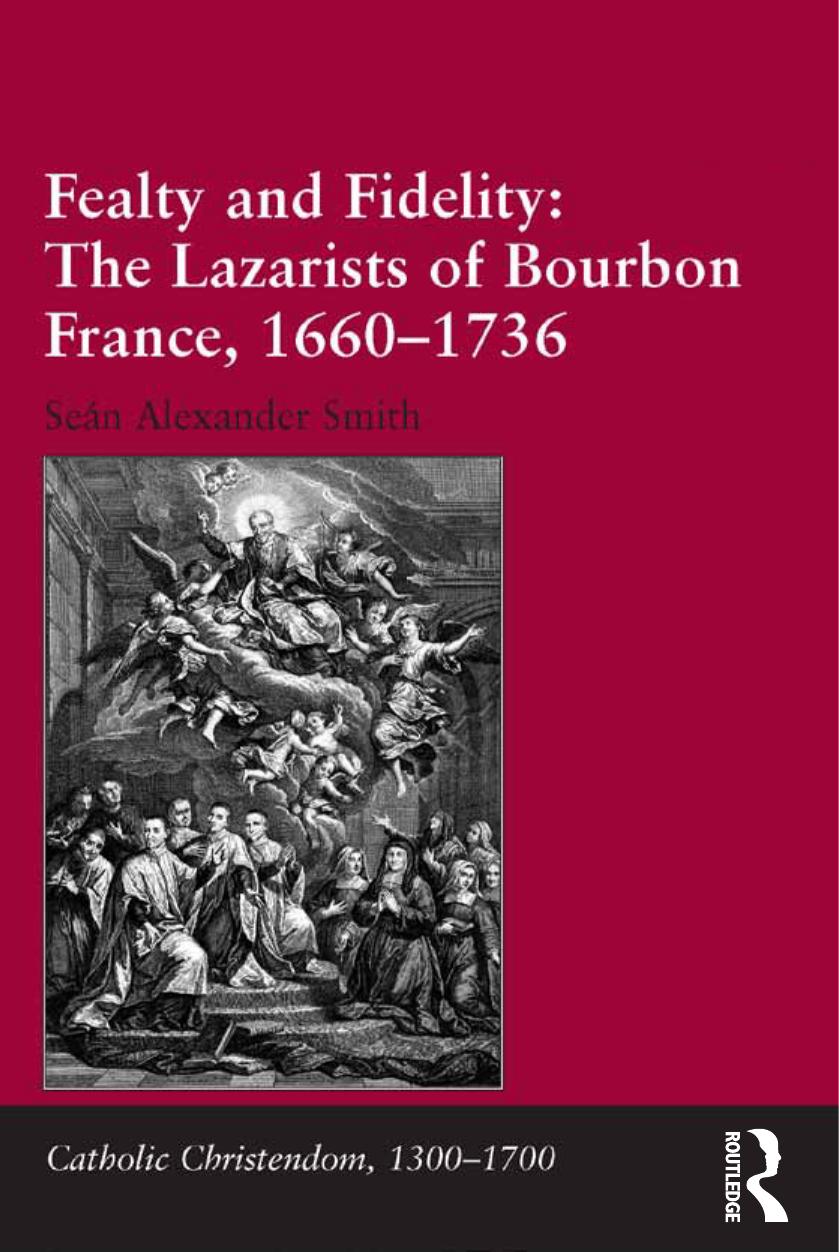Fealty and Fidelity: The Lazarists of Bourbon France, 1660-1736 by Sen Alexander Smith;

Author:Sen Alexander Smith; [Smith, Seán]
Language: eng
Format: epub, pdf
ISBN: 9781317136200
Publisher: Taylor & Francis (Unlimited)
Published: 2015-01-15T00:00:00+00:00
126 RC, 1:164. 127 Hébert, Mémoires, 11. 128 RC, 1:209. At the time of Jollyâs death, Faure held one of the Congregationâs most influential positions, the parish of Fontainebleau, but he was also Savoyard and therefore not a naturally born subject of Louis XIV. While the Congregation was not bound to elect the vicar general, the probability of Faureâs election was strong enough for Louis XIV to veto him. The Congregation heeded the prohibition, but soon after Pierronâs election on 10 August 1697, members of the Lazaristsâ foreign provinces, especially in Poland and Italy, expressed their alarm at the kingâs presumption and even questioned Pierronâs election. The king himself began a lengthy correspondence over the issue with his representative in Rome, the former grand almoner Cardinal de Bouillon, and matter-of-factly announced in a letter to the latter dated 26 May 1698 that Pierron had been elected âfreely and unanimouslyâ, adding only that âsome Italian and Polish priests who were there for the election claimed to put it into doubt on returning to their countriesâ.129 According to Louis, the Polish and Italian confreres believed there had been insufficient freedom during the election and refused to submit to Pierron until the pope had confirmed the election. He told de Bouillon that it was important to find out whether the foreign provinces sought to âannul the election or extract themselves from the obedience of the general who is in my kingdomâ.130 However, de Bouillonâs response in June 1698 made no mention of any Polish or Italian threats to secede. Relating that he had spoken to the Lazarist superior in Rome, the cardinal informed Louis that his veto had indeed troubled the foreign provinces, and even some of the French delegates, because âthey regarded it as something contrary to their rules and the intention of [Monsieur] Jolly who, as he lay dying, had nominated [Faure]â. However, at this stage, the good of the Congregation had dissuaded them from making a direct appeal to the papacy.131
Download
Fealty and Fidelity: The Lazarists of Bourbon France, 1660-1736 by Sen Alexander Smith;.pdf
This site does not store any files on its server. We only index and link to content provided by other sites. Please contact the content providers to delete copyright contents if any and email us, we'll remove relevant links or contents immediately.
| Africa | Americas |
| Arctic & Antarctica | Asia |
| Australia & Oceania | Europe |
| Middle East | Russia |
| United States | World |
| Ancient Civilizations | Military |
| Historical Study & Educational Resources |
Cecilia; Or, Memoirs of an Heiress — Volume 1 by Fanny Burney(32067)
Cecilia; Or, Memoirs of an Heiress — Volume 3 by Fanny Burney(31463)
Cecilia; Or, Memoirs of an Heiress — Volume 2 by Fanny Burney(31413)
The Secret History by Donna Tartt(18188)
Sapiens: A Brief History of Humankind by Yuval Noah Harari(13994)
Leonardo da Vinci by Walter Isaacson(12809)
The Radium Girls by Kate Moore(11626)
Sapiens by Yuval Noah Harari(5125)
How Democracies Die by Steven Levitsky & Daniel Ziblatt(4966)
The Wind in My Hair by Masih Alinejad(4849)
Homo Deus: A Brief History of Tomorrow by Yuval Noah Harari(4692)
Endurance: Shackleton's Incredible Voyage by Alfred Lansing(4511)
Man's Search for Meaning by Viktor Frankl(4295)
The Silk Roads by Peter Frankopan(4275)
Millionaire: The Philanderer, Gambler, and Duelist Who Invented Modern Finance by Janet Gleeson(4107)
The Rape of Nanking by Iris Chang(4024)
Hitler in Los Angeles by Steven J. Ross(3803)
The Motorcycle Diaries by Ernesto Che Guevara(3789)
Joan of Arc by Mary Gordon(3788)
